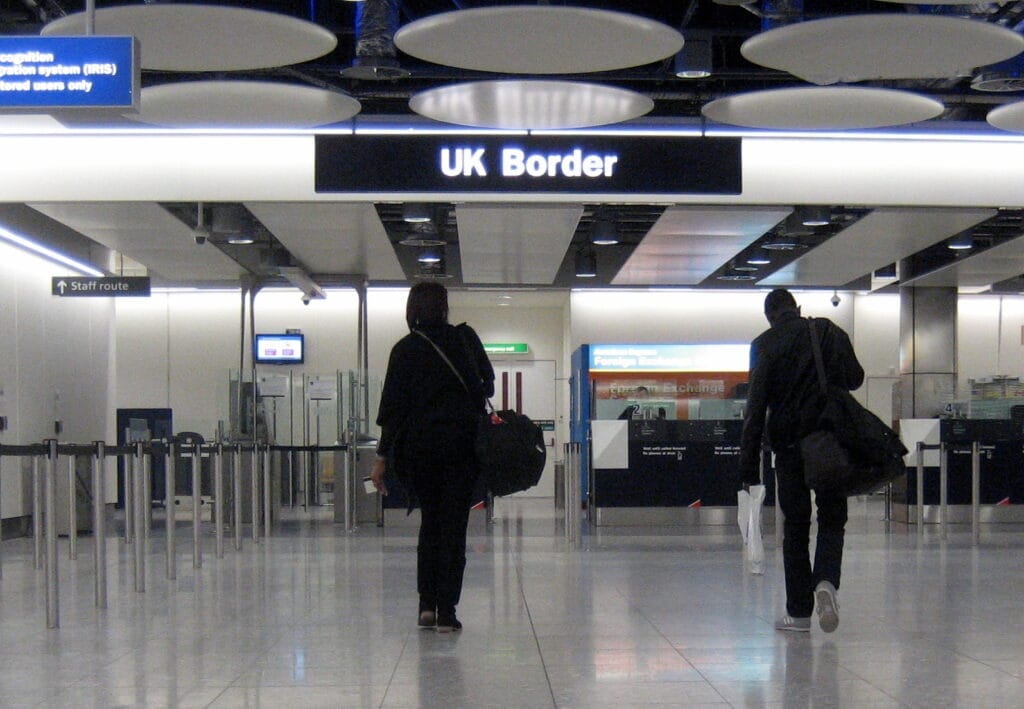Migration Advisory Committee (MAC) publishes 2024 Annual Report
The Migration Advisory Committee (MAC) has this week published its annual report for 2024, highlighting significant changes in UK immigration policy following the election of a Labour government in July this year.

The MAC is an independent body that provides evidence-based advice to the government on matters relating to migration. The committee is required to produce an annual report to inform Parliament and the public on the work it has carried out, and to make recommendations in relation to all aspects of the immigration system.
This is the fifth annual report that the Migration Advisory Committee (MAC) have produced since new framework was introduced in 2020.
Inside the MAC Annual Report 2024
This year’s 52-page annual report is split into the following three chapters:
- A discussion on the government’s intention to link work immigration and skills policy, and government policy to reduce net migration.
- An analysis of fiscal impacts of migrants on the Skilled Worker visa.
- MAC review of the Seasonal Worker visa scheme.
Below is a short summary of each chapter, plus a brief look at what’s in the pipeline for the MAC in 2025.
Chapter 1: Linking migration and skills policy, and recent UK net migration trends
The first chapter of this Annual Report examines the use of the work routes for foreign workers over the last few years, and the potential link between immigration and skill shortages across all sectors.
On recent UK net migration trends, the report found:
- Net migration between 2021 and 2023 was unusually high, mainly due to increased international students and non-EU work immigration through the Skilled Worker route, most noticeably in health and care occupations.
- Since November 2023, Health and Care Worker visas have dramatically decreased, likely due to changes in how the ‘genuine vacancy test’ is assessed. The ban on dependants of care workers was implemented from March 2024 and the number of Health and Care visas issued has continued to decline since then.
- Even with the decrease in Health and Care visas, the sector remains a main driver of work visa numbers.
- The recent immigration rules changes announced by the previous government are likely to reduce work-related immigration further, although it is too early to know by how much.
This chapter also discusses the government’s intention to link migration and skills policy, highlighting the following key points:
- Linking immigration and skills policy is not a ‘one-size-fits-all’ approach and it is important to consider the individual circumstances within sectors and occupations, including diagnosing whether shortages are genuinely driven by a lack of skills or are due to poor pay and conditions of certain roles.
- Increasing the level of skills in the domestic labour pool does not guarantee a reduction in the reliance on the immigration system as migrant and domestic workers are not perfect substitutes and employers will often still seek the best possible match for their vacancy, which may be an international recruit.
- Therefore, the impact of investment in skills on immigration will vary by sector and occupation.
Chapter 2: Fiscal analysis of Skilled Worker visa
The report provides quantitative estimates of the fiscal impact of migrants. Fiscal impacts are a key consideration for policymakers when designing future immigration policy. These are the MAC’s first in-house estimates of the fiscal impacts of migrants on the Skilled Worker visa and allows a comparison between migrant groups as well as the native population.
In summary:
- The MAC estimates that the average migrant on the Skilled Worker visa had a positive net fiscal impact of £16,300 and that the average UK-born adult has a positive net fiscal impact of £800 in 2022/23.
- For households, the MAC estimates the typical Skilled Worker route household had a positive net fiscal impact of £12,000 and the equivalent UK household to have a negative net fiscal impact of £4,400 in 2022/23.
The report explains that migrants on the Skilled Worker route are net fiscally positive as the immigration rules are designed to allow entry to the highest earning migrants who meet the salary thresholds of the route.
However, the MAC goes on to caution that the analysis presented in its report is static and a ‘snapshot in time’. The committee intends to refine their methodology and develop a dynamic model for future commissions, to better understand the lifetime impacts of migrants as they progress through the UK labour market.
Chapter 3: Review of the Seasonal Worker visa scheme
Finally, chapter three of the report summarises the MAC’s review of the Seasonal Worker visa scheme, which was published in July this year.
The Seasonal Worker visa is a temporary work route which enables migrant workers to come to the UK to undertake seasonal horticulture and poultry production work. Whilst the previous government pledged that the scheme will run until at least 2029, the current government has so far only confirmed visa numbers for 2025.
In its July 2024 review, the MAC made recommendations around 5 key ‘umbrella’ themes:
- Provide certainty on the future of the scheme.
- Allow for a more flexible visa.
- Fairer work and pay for workers.
- Tighten and enforce employee rights.
- Give consideration to the Employer Pays Principle.
The MAC’s view is that ultimately, if the government intends to maintain current levels of domestic food production, then there is a clear need for the Seasonal Worker Scheme in the short-to-medium term. However, if the government wishes to reduce the reliance on migrant labour whilst maintaining domestic food production and supporting rural economies in the long-term, then it must ensure there are appropriate policies and an environment that encourages automation of these roles.
The MAC is still awaiting the government’s response to the review.
2024 Governance Report
Alongside the Annual Report, the MAC also published its Governance Report for 2024 which covers financial reporting alongside a record of stakeholder engagement work and publications produced by the MAC this year.
The MAC completed two rapid reviews for the previous government in the first half of 2024.
- The first updated the Immigration Salary List, where the committee recommended a more restricted list of eligible occupations.
- The second provided a review of the Graduate Route, concluding that the route was fulfilling the objectives that were set for it in 2021 and recommending that the route continues in its current form.
The MAC also made recommendations to improve the regulation and transparency of agents in the student recruitment process, which it argued would help safeguard the reputation of the UK higher education sector. The previous government accepted the recommendations, and this has been confirmed by the incoming administration.
The role of the MAC in 2025
The Labour government elected in July have already announced a wide-ranging set of immigration policies – on legal migration, returns and the asylum system.
Going forward, the government is expected to rely more heavily on the MAC to help inform future policy making, by providing insights on migration trends and recommendations to ensure migration is not used as an alternative to tackling training or skills shortages in the UK.
The MAC has so far been commissioned by the Home Secretary to conduct two reviews:
- First, the MAC has been tasked with reviewing the financial requirements for family visas. This follows a substantial rise in the minimum income requirement enacted by the previous government as part of their December 2023 package of immigration measures. The Call for Evidence has recently closed for this review, receiving the largest number of submissions ever recorded by the MAC. This report is due to be published in June 2025.
- The second commission is focused on the use of work immigration routes for IT and Engineering professionals. This is the first of a set of reviews the MAC are expected to conduct, to examine sectoral reliance on immigration and how the immigration system could be better designed to incentivise sectors to recruit from the domestic workforce.
The government have stated that the MAC will be asked to provide a yearly assessment to Ministers regarding key sectors’ use of the immigration system. Smith Stone Walters will provide an update on the findings when the reports are made public.
UK immigration advice for employers
The government is committed to reducing net migration and clamping down on employers who breach the immigration rules. If your business currently sponsors migrant workers or intends to do so in the future, it is crucial to understand the legal requirements and ensure your organisation is compliant.
If you require support in managing your organisation’s immigration and compliance programmes, Smith Stone Walters can help. We understand that each business is different and with this in mind, we deliver a tailored plan to suit your unique goals and requirements. To find out more, please contact us today.















